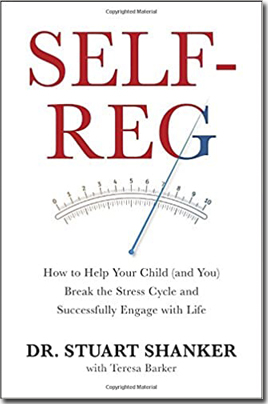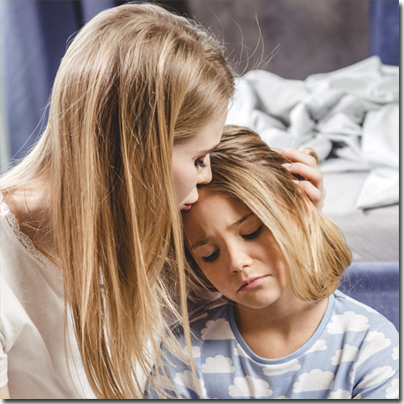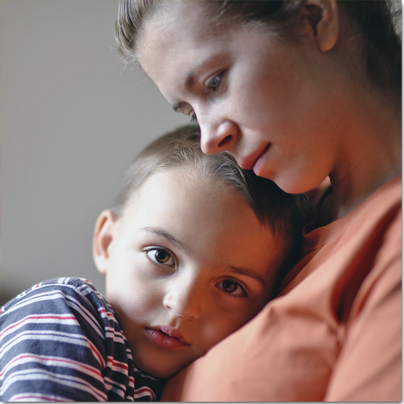 Don’t you absolutely love it when your child giggles and embraces you with so much happiness in their heart?
Don’t you absolutely love it when your child giggles and embraces you with so much happiness in their heart?
When children are happy, we tend to join in their fun and feel a sense of ease.
Tears and temper tantrums on the other hand can be hard to accept, let alone deal with in a calm way.
I am a certified parent educator, and not once in the last decade has a parent told me that they enjoy their child’s temper tantrums!
It doesn’t matter whether your child is 2, 12 or 22… we can all agree that tantrums are not desirable. Tears, screams and meltdowns are hardly something we want to see our child go through. Understandably, it can be difficult to stay calm and respond nicely when a child has a massive temper tantrum.
When parents reach out to me for coaching and support, how to handle their child’s temper tantrums is a very common concern.
Here’s one parent’s experience and challenges with his two year old daughter:
When my daughter’s whole body goes limp, and she starts this high pitched screech over some little thing, I just can’t cope so well. Usually the screeching is about something as simple as the color of her breakfast bowl or that I will not play her favorite song again for the thirteenth time. I really mean thirteenth time, so you know, I’ve done my best to be patient, and still she screams about it.
These tantrums just don’t seem normal to me! Are they normal? What am I supposed to do when my daughter is throwing such a big fit over these simple things?
You may feel alone, but these are questions many parents have. Let’s talk about what’s normal for kids and how to handle temper tantrums.
Parenting a Child Through Tears and Temper Tantrums
 Tantrums and screeching are challenging but quite typical behaviors for a growing child.
Tantrums and screeching are challenging but quite typical behaviors for a growing child.
Even if you have a very even-tempered child, you can expect moments of great emotional overwhelm in the years to come. While temper tantrums are most common in the early years, they can still happen as your child grows, even in the teen years.
The good news is that temper tantrums don’t happen because your child is bad, naughty or defiant.
Here’s why temper tantrums can happen at any age:
- Tantrums are the result of emotional overwhelm and can be a normal part of growing up.
- The ability to stay calm instead of melting down only happens when children have developed self-regulation abilities.
- Tears are the brain’s way of dealing with stress.
 “Under excessive stress we regress,” says Dr. Stuart Shanker, a Distinguished Research Professor Emeritus of Philosophy and Psychology at York University and author of Self-Reg: How to Help Your Child (and You) Break the Stress Cycle and Successfully Engage with Life.
“Under excessive stress we regress,” says Dr. Stuart Shanker, a Distinguished Research Professor Emeritus of Philosophy and Psychology at York University and author of Self-Reg: How to Help Your Child (and You) Break the Stress Cycle and Successfully Engage with Life.
According to Dr. Shanker, tantrums and meltdowns happen when children are overwhelmed and unable to self-regulate. Dr. Shanker also explains that the younger the child, the more quickly this can happen.
Thinking back to the dad’s example above, can a cereal bowl color really cause excessive stress? Is not being able to listen to your favorite song for the one trillionth time truly stressful? Can your child’s sock seam being crooked, a sibling looking at you in a funny way or the cookie falling on the floor really cause such stress?
The short answer is that in childhood, with an immature brain, these seemingly simple problems can and do cause your child enough stress to melt into a pile of tears.
Immature brains experience a lot at once, so there are often hidden stressors in a toddler’s life (and later in your child’s life as well) that can create a sense of overwhelm when things don’t go according to plan.
The key thing to remember here is this: It’s stress, not defiance.
How to Handle Temper Tantrums
 To best deal with temper tantrums, I suggest you see meltdowns and screaming fits as stress behaviors, not naughty behaviors. A responsive approach to tantrums is the only way to calm a child’s nervous system and help them get back to feeling calm.
To best deal with temper tantrums, I suggest you see meltdowns and screaming fits as stress behaviors, not naughty behaviors. A responsive approach to tantrums is the only way to calm a child’s nervous system and help them get back to feeling calm.
Here are five steps you can take to help your child during a temper tantrum. They may seem simple, but they can go a long way to making the situation less stressful for both of you.
1. Stay calm and stay close.
For many children, a parent’s loving presence, combined with a hug, can be a positive, calming experience during a temper tantrum.
If your child prefers to have some distance, it’s also perfectly alright to respect that. No matter where you wait for your child’s temper tantrum to subside, stay calm and close enough to keep your child safe.
2. Don’t worry about fixing the problem just yet.
It’s natural that you might want to do anything you can to get the tears and screaming to stop.
But keep in mind that during a temper tantrum, your child can’t pay attention to their feelings and your solutions at the same time. Don’t bother trying to coax your child into cooperating or accepting anything just yet.
3. Validate your child’s feelings.
 Allowing your child to feel their feelings is very important.
Allowing your child to feel their feelings is very important.
Many children benefit from having some validation about how and what they are feeling during a temper tantrum.
Validation is different from fixing or erasing the problem and can help a child feel understood.
Aim to use calm words that let your child know you are present and willing to help. It might sound like:
“I can see you seem so very mad right now.”
“You didn’t like my answer. You are upset.”
“This isn’t going the way you wanted it to go.”
“You are mad at me because of what I said.”
“Uff..this is hard for you. I’m here with you.”
“I can sit and wait with you.”
Stay open to saying as much or as little as needed by watching how your child is reacting to your words. Over time you will see what works best for each unique child.
A quick note here: be wary of advice about ignoring and isolating a tantruming child.
Ignoring and walking away from a tantruming child has been very common advice for many years. It was previously believed that if you ignored a temper tantrum the child would stop trying to “manipulate” the parent into getting what they want. You may still hear this from well-meaning grandparents, aunts and uncles, and even your other parent friends.
After many decades of research on child development, psychology and self-regulation though, it is now well understood that emotional isolation is not a good idea for the growing brain. Children need your loving presence in order to calm down, feel well and behave better.
Dr. Brenè Brown, is a research professor at the University of Houston and well known author of several books. She has spent the last twenty years studying courage, vulnerability and shame. Brown shares that isolation is a very destructive and emotionally terrifying experience for all humans.
While your child might stop crying if you ignore them long enough, this approach to temper tantrums is no longer recommended because it will not help your child develop good self-regulation and self-control skills.
4. Help your child calm down.
 We all want our children to calm down and finish their tantrums as soon as possible, but the nitty-gritty of the research and science boils down to this: it’s best to just keep calm and let your child’s tantrum carry on until it’s done.
We all want our children to calm down and finish their tantrums as soon as possible, but the nitty-gritty of the research and science boils down to this: it’s best to just keep calm and let your child’s tantrum carry on until it’s done.
You can actually help your child learn how to calm down by staying calm and helping them through all the big feelings. It’s hard work for us, but it pays off big time as the years go by.
To make peace with tears and be able to stay calm when your child has a temper tantrum, try to keep the following in mind:
- Tantrums are simply a signal that your child has reached their personal limit on their frustration meter.
- Tears help children’s minds recalibrate, de-stress and calm down.
- Your child is not purposely trying to embarrass you, complicate an outing or make your day miserable.
- Under excessive stress, your child’s behaviors will regress!
Being calm and kind during a temper tantrum will not reward your child or spoil them into always crying to get what they want.
Here’s why you can’t spoil a child by supporting them during a tantrum: When you support your child’s emotional needs, you are not giving in to their demands.
Positive Parenting is NOT Permissive Parenting. (Editor’s note: Read more about how to be positive without being permissive here.)
Listening to tears will let you connect to your child’s heart and mind until they are calm enough to move forward.
5. Going forward, don’t be afraid of temper tantrums, but pick your battles.
 Some parents feel they need to walk on eggshells to avoid a tantrum. Not so!
Some parents feel they need to walk on eggshells to avoid a tantrum. Not so!
It’s very important that you set appropriate limits on unhelpful behaviors, even if you know it will result in a temper tantrum.
It’s important to have boundaries and limits and help your child understand them. It’s also important to gauge your child’s emotional meter and decide what kind of limits are truly important to set and keep.
Let’s think back to the examples of the song and cereal bowl.
If playing a song for the fourteenth time is really not going to work for you, you can say so. Just be ready to embrace the tears that are needed for the child to accept your decision.
Switching from a red bowl to a blue bowl isn’t likely to be a huge problem, so go ahead and make the switch, even before the tears and screeching starts.
Already mid-tantrum and you didn’t realize the color of the bowl was that important? Just say so.
That’s not “giving in” or being “manipulated.” That’s called being attentive and kind to a fellow human. If you had a guest at your home you would probably not hesitate to do something nice. In this case there is absolutely no harm in being just as nice to your child.
Remember: emotional development is a process that takes many years and a huge amount of patience. While temper tantrums might be common in the early years, the more parents take a positive approach to tears, the more children are likely to develop self-regulation and self-control skills, and the fewer temper tantrums you have to deal with when they are older!
The 2-Minute Action Plan for Fine Parents
Prepare yourself to respond to the next temper tantrum by asking yourself these questions now:
- Can you see how temper tantrums are a stress behavior and not a misbehavior?
- How have you been responding to tantrums so far? Would you consider changing your approach with this new information?
- Imagine your best friend is upset and crying about a work problem that really stresses her out. Would you walk away and leave her to sort her feelings or stay and try to be supportive?
- Do you feel confident about setting limits on behaviors while at the same time being available to listen to your child’s feelings if a meltdown ensues?
The Ongoing Action Plan for Fine Parents
Over the next week try this:
- The next time your child has a temper tantrum, try to observe and think about what kind of stress your child might be experiencing.
- Validate your child and listen to the tears with the intention to understand, rather than shut down the tantrum.
- If you are concerned about being manipulated or sense that you give in to demands after temper tantrums, write a list of ways you intend to be present with your child while still being committed to setting healthy limits. This can help you identify patterns and stop the cycle of frustration for both of you.
Excellent article with real practicalities. Thank you.
Thank you for this article, it is clear and encouraging about our approach as we navigate seemingly unpredictable daytime tantrums with our 3yo.
One struggle we’re having that is more predicable is the and of day, bedtime tantrums. We have a strong routine, our little guys has always been an active participator with good sleep habits but bedtime has become a bit of a struggle in the last few months. We talk about the process and everything is calm and agreed to until the door closes and then he dissolves, cries out and melts down. We feel conflicted because it presents a lot like a tantrum, so ignoring and isolating him feels tough but responding to him doesn’t seem to really solve the problem until you reach the “magic” decision that gives him the feeling of control and he quietly goes right to sleep (whether it’s a sip of water, taking a book to bed or a pair of socks on any given night). How would you approach this?
Hi Melanie.
Sounds like the road through three is having the standard ups and downs. It also sounds like you are pretty clear on what works for the night time challenge.
As you appreciate three is the age of personal power, aka how much control or influence do I have in my world. Otherwise, I am not really seeing a concerning issue, so wondering what is the concern you have?
I wonder, as you have identified the range of requests. Have you considered doing a last checkin before bed? Having been through a similar challenge it’s working out how to short circuit the request and so we tried getting ahead of the curve by doing a run down of the standard requests.
Have you tried the validating his feelings approach, which sounds like you do during the day? Lots of times with three, if they feel like you’ve listened, it can make the issue collapse.
Alternately, if you’ve tried the validation approach when he’s asking for more things, and the boundary is the agreed sleep time. Could you talk about it at not bedtime and have a strategy in place for what happens?
It can be tough, and if he’s closer to four, you may even have a developmental effect in play as four can be a bit complex as the two hemispheres of the brain are integrating, with bridges being built in the neurology, and for a little while there are detours and misreads that our kids experience which has their side of the view be a little overwhelming.
This is all covered in The Whole Brain Child by Daniel Siegel and Tina Payne Bryson.
I agree that closing the door and cry it out is never a good idea. I did that with my oldest, which was the best I knew at the time (he’s 38), and not with the others.
If it’s really problematic, you could consider sleep training, there is a process on ahaparenting which is Dr Laura Markham’s website and it’s pretty much the process we used with out other children. It’s a gentler approach that builds certainty and trust with the child. Trust in you and trust in themselves to settle.
Your child is old enough to do this type of sleep training, if you continue to have a challenge.
Otherwise, when our oldest was four, he was not a very easily settled boy and he didn’t generally go to sleep early. He didn’t like the door closed, so the compromise was that he had to stay in bed. He was allowed to have a book, or some toys. We did at one stage let him have his matchbox car box, and had to cut that back to just a few cars because he’d get so engaged in his game that he’d be awake at 1030pm.
Sometimes there is no magic pill or action. It’s test and measure. The most important thing is to make a decision. Commit to it, be consistent. Unfortunately with little kids, if they see a chink in the armour, they will go for the odds that you might give in. It’s not about being harsh, which is different to being consistent. It can be harder work, because it can mean repeating a process over and over to build in the certainty with your child that you mean what you say and you say what you mean.
Though I am not sensing that there is a huge issue at the moment. Seems like one of the normal phases that many kids go through.
I wish you well in figuring out what is the key for you guys.
Just as an aside, if you have been logic ing through the process with him, that could potentially be part of the problem. Only you will know for certain if that could be. What logic ing can do with a young child, who can’t process it, can seem like you are not certain. I don’t know how you discuss, and you might already be doing fine, only something to think on. The book Raising a Secure Child can give more insight on what can be going on then.
My son is already 11 and when he is angry/frustrated, he screams and throws the first thing he gets his hands on. Fortunately, nothing has been broken in the house yet. The worst was dropping his school chromebook on the floor; it’s good it was still in the padded bag. We’ve been practicing breathing techniques to calm down but when he flares up, he would refuse to use it and would say nothing works. How do I handle this? Thank you.
Hi Ethaline. Tough situation, and sorry as it must be quite frustrating to you too.
As the mother of a similarly challenged child with ongoing really big emotions and poor impulse control, it’s also appreciating, why might my child not be improving?
If you consider that all behaviour is communication, then I wonder if the response you have been giving isn’t working, is it possible that a different approach might be worth trying.
What can happen, is that when you say breath, instead of your child receiving it as an effort to support, they can instead receive as “I am not good enough or there’s something wrong with me”. If that happens, instead of calming it can drive reactivity, which comes from lizard brain ie our instinct. Especially if they are already feeling out of control.
The opportunity is to still validate feelings first. This is so that our child knows they are acceptable even if their behaviour is not. It provides an opening for our child to stay out of lizard brain and retain access to thinking brain.
What we found is it also helps to strategise outside the moment about how to manage the big emotions.
If this is more of a fresh behaviour, it could also be part of the tween neurological development, called pruning. During this phase, a human’s ability to self regulate and make good decisions can be compromised because the process hives off energy to that task, so not so much for everyday processing.
There is still a need to assist our child to process the thinking that is driving the response. You may find the book Raising Human Beings by Dr Ross Greene may assist as it goes through an end to end why, what, how conversation on mismatched expectations.
You might even find the book The Whole Brain Child of value. My husband works with children on behaviour management and they use the hand-brain model from the book as a visual cue. You might find that something similar will be of value with your child. The thing about a visual is it can bypass the reaction, so that the message is still processed. Though equally, you might talk and there could be a code word that helps to manage.
I know when my kids were teens. I can be inclined to be pretty animated and would get very loud, even if not angry. My children developed a hand signal to let me know to ease down. You may even ask your child to suggest the solution that would help him to refocus when he does get angry.
Best wishes in finding the model that works best with you. I know we had to get out of the tactical in the moment management which just drove anxiety and conflict. We moved into a more strategic approach that made a big difference and is a model that has been used in hundreds of situations to help with getting through difficult situations.
How do we handle this with a 6 year old on the spectrum? Do you have any ideas / suggestions?
Thank you!
Awesome article, thank you!
I have a question on how you could apply this to an even younger child? Our baby is 7 months and she screams like she is being tortured in the car seat. I make sure that she is fed before I try to sing and make her happy before even buckling her in and give her a toy and pacifier for comfort and still the minute the buckles clip she’s screaming. We try music I try to talk to her, no hope.
It gets so bad I have to pull over because her nose is plugged and shes choking on her own saliva, which terrifies me.
I feel hopeless I can’t handle the crying at first it makes me feel really sad but after it keeps going I feel angry. She stops the minute we take her out of the car seat! I feel like I am abandoning her because I have to be in the front seat focused on driving, even though I say “Mommies right here.” How am I supposed to make a younger baby who doesn’t understand feel like I’m still being there for her? How am I supposed to set boundaries with her? Especially since the car seat is obviously for her safety! And also is it really okay to just let the crying keep going for even 30 minutes when we have to drive!? It doesn’t feel right 😕
Thanks in advance
Tori
Hey Tori!
Have you tried putting her in the seat while being at home? Maybe you could make her used to being in there step by step. For example, first being just in the seat with lots of fun activities, then being there buckeled up, then taken to the car but not driving and finally driving? Or would it be possible to put her on the front seat (with the airbag disabled)? Or put a mirror in the back so she could see you during the drive?
I sure know that intense screaming can lead to anger, it’s just too much of stress during a long period of time. If you can (and it won’t interfere with your driving), you can try using ear plugs or put on your favourite song and sing along. And practice deep breathing with longer breaths out which lowers your pulse.
Anyways, good luck!
Wonderful read
A very helpful article, thank you.
Any tips for when the tantrum involves hitting? Our 6 year old son when very overwhelmed with anger and rage can oftentimes lash out at his older sister which only makes him feel bad after. How can we help him temper that behaviour and stop him from hurting others when he is cross and upset?
excellent question! I look forward to he4 suggestions! Thanks for asking!
This is a great article thanks for the resource.
One question, what do you do when you 2 year old not only has a tantrum and screeches but also hits his older sister and his parents in his tantrum?
It seems like you want to allow him to learn to self regulate but don’t want to let him think it’s ok to hit.
Thoughts?
Hi Justin I have been reading a lot on sibling tantrum issues and how we can avoid hitting. From what I have learned through the course of years is that when both the siblings are sitting calmly and playing together, that is the time you need to praise them . Praise them a lot on how happy and proud you feel when they both play peacefully together. This makes them want to act the same way again and again and gain your trust and approval. Might lead to less hitting.
Second, when of the kids hit others do not react or shout at that moment . Be there , show your disapproval and be silent. When that kid is all ready to be tucked into bed, have a one to one honest conversation with them and let them know how bad you felt when they hit their brother or sister.
Advices when the kids are calm or when it’s bedtime, works like a charm always. Hopefully this helps
All the best.